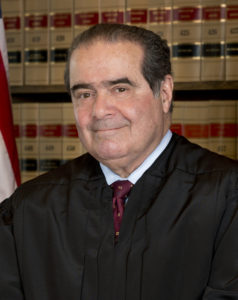A Triumph of Textual Analysis: The Texas Supreme Court Tackles the Issue of “Same-Sex” Sexual Harassment

This article also appeared in the Federalist Society’s State Court Docket Watch blog, and again in the 2018 Annual Summary.
Texas’s employment discrimination statute (the Texas Commission on Human Rights Act, codified in the Texas Labor Code at section 21.001 et seq.), like its federal counterpart (Title VII of the Civil Rights Act of 1964, 42 U.S.C. section 2000e et seq.), prohibits discrimination on the basis of enumerated characteristics, including “sex.” Accordingly, an employer is forbidden to treat an applicant or employee differently because of that person’s sex. Without a sex-based nexus, the employer’s conduct may be rude, unfair, obnoxious, boorish, or insensitive, but will not constitute illegal sex discrimination.
Courts used to emphasize that Title VII and similar discrimination statutes (ADA, ADEA, etc.) do not create a general civility code for the workplace. Those readers old enough to remember the long-running comic strip Blondie can envision Mr. Dithers’ habitual mistreatment of Dagwood Bumstead on the job, illustrating the reality that bosses can be uncouth and tyrannical, work is often stressful and unpleasant, and that the world is full of jerks and bullies. These notions were once so commonplace that they formed a running gag in one of America’s most popular comics.

Employment discrimination laws do not prohibit all mistreatment, only specific types of discrimination. Insults, vulgarity, offensive comments, derogatory remarks, and other types of abuse are not forbidden unless they involve a statutory nexus. As I’ve pointed out elsewhere, long after the passage of Title VII, in the 1980s the Equal Employment Opportunity Commission, with the unfortunate acquiescence of the Supreme Court, [1] transformed the word “discrimination” (and the precise category of employment practices it encompassed) to include the much more amorphous term “sexual harassment.” Yes, under Title VII and most state statutes, the rapidly-expanding body of “sexual harassment” law is actually being conducted as a form of “discrimination.”
Of the two forms of sexual harassment recognized by the courts—quid pro quo and so-called “hostile work environment”—the former most closely resembled “discrimination” and may have even been cognizable as such without the innovation of “harassment.” If a supervisor conditioned granting employment benefits (or threatened adverse consequences) based on a subordinate’s submission to sexual favors, there is a strong nexus to the statutory ban of disparate treatment based on sex.
In our sex-drenched popular culture, however, the subjective nature of “hostile work environment” sexual harassment, often consisting of nothing more than offensive utterances—dirty jokes, suggestive comments, or risqué statements—generated the bulk of the litigation. Despite the Court’s effort in Harris v. Forklift Systems to cabin claims to “severe” and “pervasive” situations, as a practical matter almost any alleged scenario could withstand a motion to dismiss. Title VII has been converted into a code of workplace etiquette. Especially when Title VII was interpreted to conflate allegations of “sex stereotyping” [2] with sex discrimination—in a case where a female was criticized for not being feminine enough—it was just a matter of time until the concept of “sexual harassment” lost any connection to sex discrimination.

That Rubicon was crossed in Oncale v. Sundowner Offshore Services, [3] where the Supreme Court (in a decision written by Justice Scalia) recognized a claim for “same-sex” sexual harassment. Boorish behavior by men toward other men, or women toward other women, became cognizable under Title VII, even though the required nexus of “because of sex” appeared to be wholly absent. Equal opportunity harassers—supervisors who are vulgar and abusive to employees regardless of sex—are by definition not engaged in conduct on the basis of sex. (Hopkins and Oncale are also being relied upon by activist judges to extend the coverage of Title VII to sexual orientation discrimination.)
In interpreting state statutes, the Texas Supreme Court is not bound by EEOC interpretations and Supreme Court precedents, even if the statutory language is similar or identical to Title VII. Thus, on April 6, the Texas Supreme Court issued a decision in Alamo Heights Independent School District v. Clark declining to liberally apply Oncale and ruling instead that sexually-themed comments by female employees directed at another female in the workplace are not actionable absent credible allegations of homosexual attraction—which were absent in Clark.
Justice Eva Guzman’s carefully-reasoned opinion for a 6-2 majority (one newly-appointed justice declined to participate) stated that
Rather than sexual desire, the record is replete with evidence directly from Clark’s complaints and deposition that Monterrubio and Boyer engaged in this behavior for other reasons. Monterrubio was jealous of Clark, viewed her as “snotty” and “high and mighty,” thought she should quit her job to be a stay-at-home mom, did not like Clark’s children or approve of her bringing them to school, was a bully who enjoyed getting a rise out of her, and along with her friend Boyer, simply did not like Clark. None of those motives are based on gender. Sexually tinged comments may be motivated by other reasons, such as personal animus, jealousy, or the desire to irritate or bully…. Motives like personal animus or bullying do not satisfy the because-of-sex requirement, even if the comments are profane, vulgar, or have sexual overtones.
Nor did Clark establish that the alleged conduct singled her out on the basis of her sex; her alleged harassers exhibited boorish and abusive behavior toward both male and female coworkers: “This evidence shows significant, similar inappropriate conduct toward both male and female co-workers, which does not raise an inference of discrimination based on sex.”
Justice Guzman correctly rejected a line of cases from other jurisdictions that have interpreted Oncale broadly:
A line of opposite-gender harassment cases uses Oncale’s “sex-specific and derogatory terms” language to argue that such behavior creates an inference of discrimination without regard to the underlying motivation. Such conduct could support an inference of sex discrimination in an opposite-gender case where, for example, the men in a mostly male environment mistreat a woman in gender-specific ways making it clear they disapprove of women in their workplace. Though we need not pass on the validity of the analysis these cases employ, at a minimum, they illustrate the importance of context; a woman harassing another woman in an all-female environment naturally raises different inferences than a man harassing the only woman in an otherwise male workplace….
Regardless of how it might apply in opposite-sex cases, a standard that considers only the sex-specific nature of harassing conduct without regard to motivation is clearly wrong in same-sex cases. The Supreme Court was abundantly clear that gender motivation is not established “merely because the words used have sexual content or connotations.” The Court rejected pre-Oncale lower-court authority holding “workplace harassment that is sexual in content is always actionable, regardless of the harasser’s sex, sexual orientation, or motivations.” Consistent with Oncale, many courts in same-sex cases have recognized that crude, gender-specific vulgarity alone is insufficient to show that harassing behavior is because of gender.
Furthermore, that a comment relates to a woman’s body says nothing about the speaker’s motive. The TCHRA is not a strict liability statute that mandates a finding of sex discrimination for any mention of a gender-specific body part. Motivation, informed by context, is the essential inquiry. Why matters. In other words, the bare act of one woman speaking to another woman about her female anatomy does not establish the comments were gender motivated.
Justice Guzman devastatingly refuted the arguments made by two dissenting justices, Jeff Boyd and Debra Lehrmann:
The dissent’s theory, which essentially imposes strict liability for any gender-specific comment, would lead to absurd results. Any mention of a gender-specific body part in the workplace would be off limits. So a female employee could not discuss breastfeeding struggles with a co-worker. Workplace breast cancer awareness campaigns would likely end, because how could the word “breast” be avoided? Some workplaces, such as a doctor’s office, could hardly function under such a rule. And since the dissent’s standard includes buttocks as gender-specific body parts, though everyone has them, even Oncale’s example of a football coach smacking players’ behinds would be barred. The dissent would prohibit any conversation or conduct that “would not have occurred” to a person of another gender, including such innocuous topics as a pregnant worker’s due date or asking to borrow a feminine hygiene product. It defies common sense to think this is what the Legislature had in mind when enacting the TCHRA, and it serves no one’s interests to impose such preposterous requirements in the workplace.
Justice Guzman concluded her 66-page tour de force thusly:
The purported harassment alleged in this case is repugnant and unacceptable in a civilized society. But we cannot step beyond the words of the statute or circumscribe the legal-sufficiency standard to vindicate a moral wrong merely because it is appalling. Neither the anti-discrimination laws nor the legal-sufficiency standard permit us to consider evidence apart from its context. This aspect of our de novo review jurisdiction is no novelty. We do not construe statutory language in isolation because context informs intent. We do not review defamatory statements in isolation because context informs meaning. In many different scenarios, we have acknowledged that, with respect to legal sufficiency, context is vital because the absence of evidence may not appear until the evidence is reviewed in context.
One of the reasons Texas has such a highly-rated civil justice system and a flourishing business environment is the excellence of its appellate courts, and especially the Texas Supreme Court. The decision in Clark is a showcase of sound textual analysis, keeping Oncale moored to the language of the relevant Texas statute.
[1] Meritor Savings Bank v. Vinson, 477 U.S. 57 (1986); Harris v. Forklift Systems, 510 U.S. 17 (1993).
[2] Price Waterhouse v. Hopkins, 490 U.S. 228 (1989).
[3] 523 U.S. 75 (1998).































